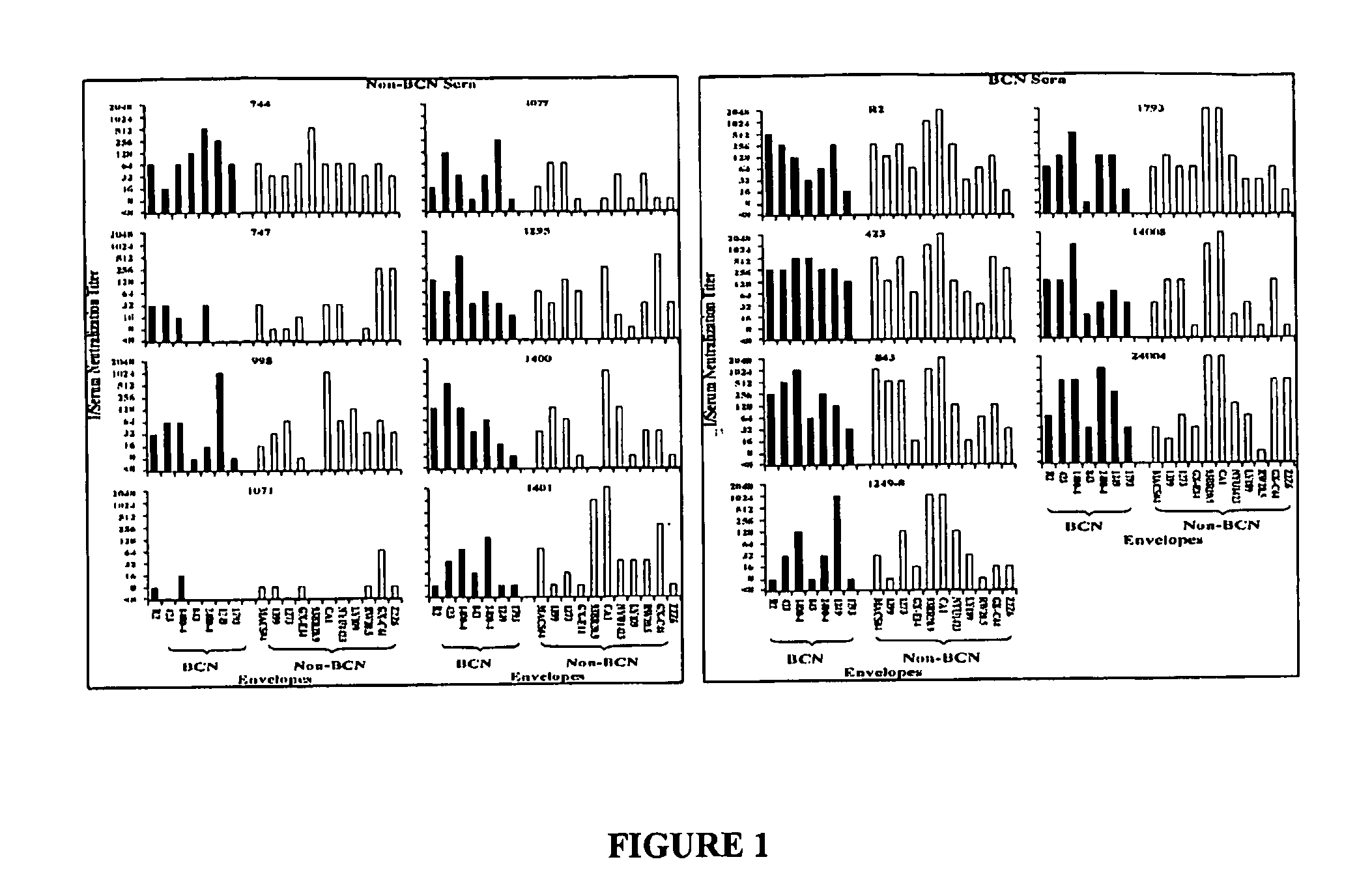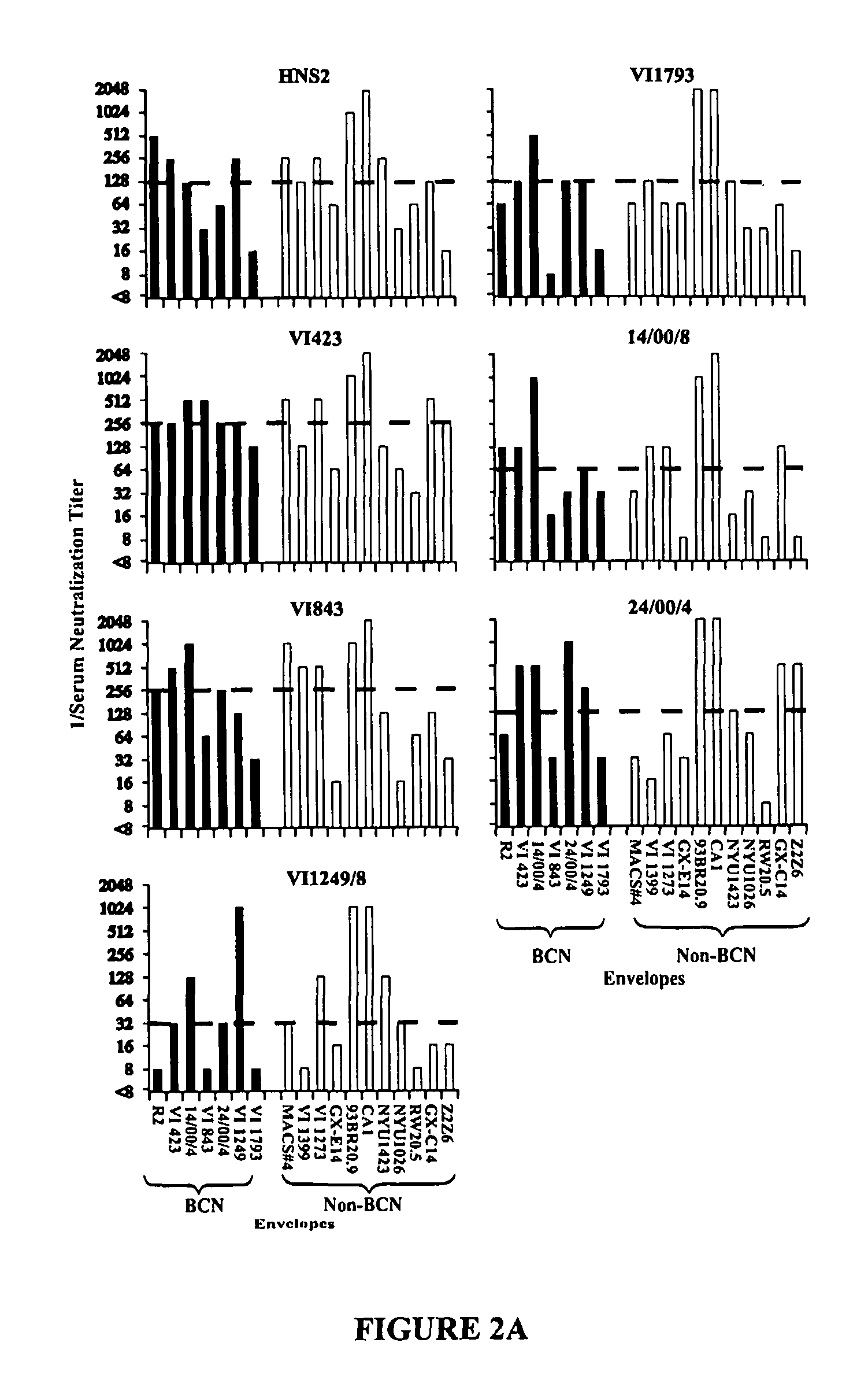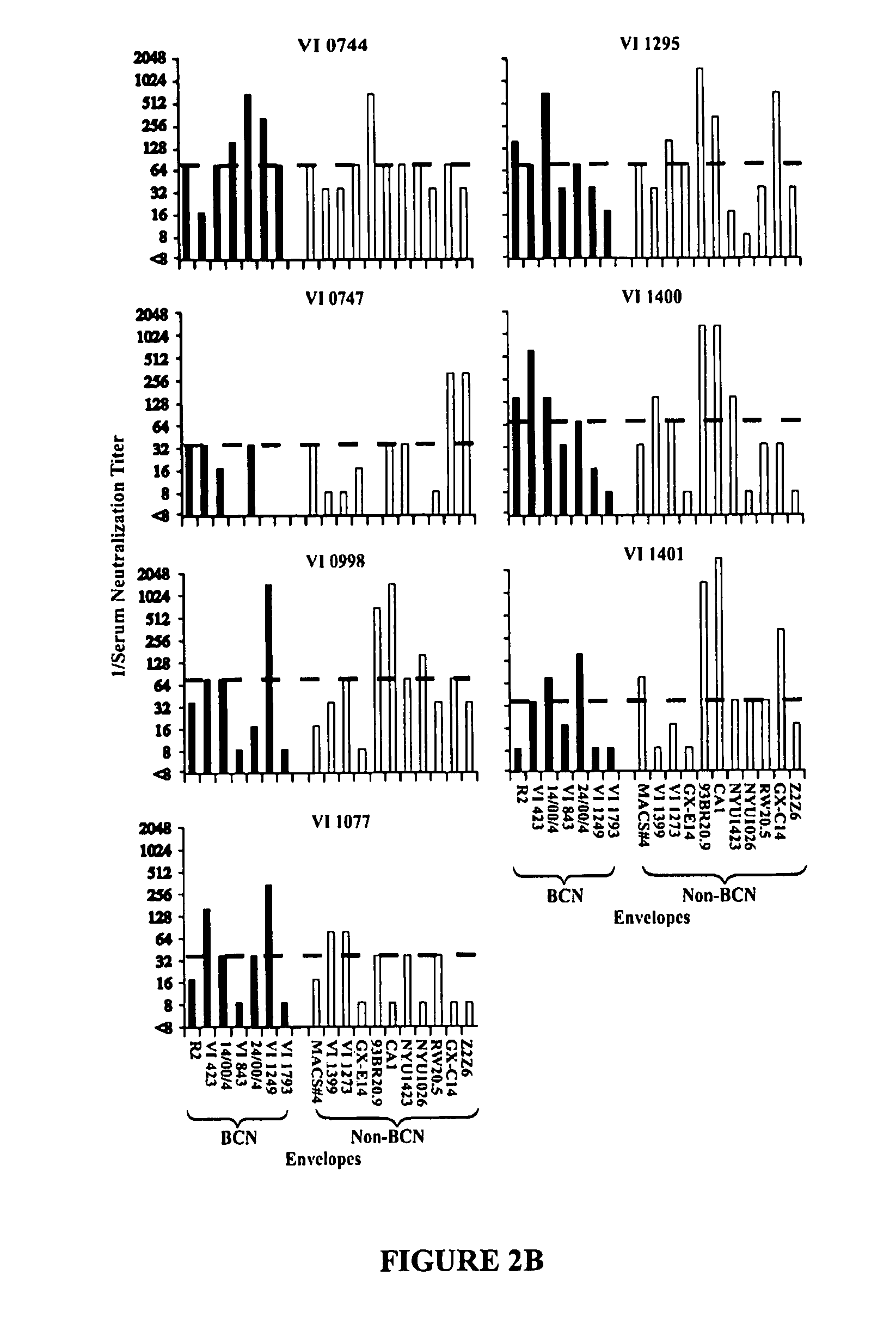Modified HIV-1 envelope proteins
a technology of envelope proteins and hiv-1, which is applied in the field of modified hiv-1 envelope proteins, can solve the problems of complex efforts to develop vaccines that neutralize the infectivity of diverse strains of hiv-1, and the inability to robustly neutralize the antibody response of infections with hiv-1, so as to reduce the amount of hiv present in an infected individual and inhibit the infection
- Summary
- Abstract
- Description
- Claims
- Application Information
AI Technical Summary
Benefits of technology
Problems solved by technology
Method used
Image
Examples
example 1
Materials and Methods
HIV-1 BCN Donors
[0085]HIV-1 group M infected donors whose sera were demonstrated to possess potent broad cross neutralizing antibody (BCN) responses (Beirnaert et al. (2000) J. Med. Virol. 62, 14-24) are part of the clinical cohort of the AIDS Reference Center at the Institute of Tropical Medicine (ITM) in Antwerp, Belgium. Peripheral blood mononuclear cells (PBMC) were collected and stored from 6 anti-retroviral (ARV) naïve HIV-1 BCN Donors. The virus envelope subtype, geographic origin and date of sample collection are represented in table 1. For comparison, the previously cloned and characterized R2 envelope (Quinnan et al. (1999) AIDS Res. Hum Retroviruses 15, 561-570; Zhang et al. (2002) J. Virol. 76, 644-655) was included in this study.
HIV-1 Non-BCN Donors
[0086]DNA extracts from co-cultured PBMCs of 4 HIV-1 non-BCN donors (NYU1423, CA1, LY109 and 93BR029) were obtained from the Veterans Administration Medical Center. Archived PBMCs from donors VI1399 and V...
example 2
Mutagenesis of A659T
[0097]To study the effects of a threonine at position 659 in gp41, we selected two non-BCN envelopes with sensitivity (LY109) or resistance (NYU1423) to 2F5 and 4E10. In these envelopes we mutated the conserved alanine at position corresponding to residue 659 to threonine using the Strategene site directed mutagenesis kit following the manufacturer's recommendations. The mutagenesis reaction was subjected to Dpn1 digestion and transformation using DH5α competent cells. To screen and confirm clones with the desired mutations, five clones were selected from each envelope for sequencing of the region bearing the A662T mutation. The clones with the desired A659T mutation were compared with the wild type clones in an infectivity and neutralization experiment with huMab IgG1 b12, 2F5, 4E10 and sCD4.
example 3
Neutralization of Viruses Pseudotyped with Functional HIV-1 env Genes
[0098]Neutralization of viruses pseudotyped with envelope proteins from BCN and non-BCN donors by sera is shown in FIG. 1. Neutralization by sera from BCN donors is shown in the upper panels, and by sera from non-BCN donors is shown in the lower panels. Serum HNS2 is the reference serum from the donor of the R2 envelope protein. The BCN sera were more frequently neutralizing against both the BCN and non-BCN viruses than were the non-BCN sera. The frequency of neutralization of viruses pseudotyped with envelope proteins from BCN and non-BCN donors did not differ significantly. These results did confirm the cross-reactivity of the BCN sera, but did not demonstrate differences between the viruses expressing envelope proteins from the two different types of donors.
[0099]For each donor, approximately 10% of the Env clones screened mediated infection of Human Osteosarcoma (HOS) cells expressing CD4 and either CCR5 or CXC...
PUM
| Property | Measurement | Unit |
|---|---|---|
| temperature | aaaaa | aaaaa |
| ionic strength | aaaaa | aaaaa |
| diameter | aaaaa | aaaaa |
Abstract
Description
Claims
Application Information
 Login to View More
Login to View More - R&D
- Intellectual Property
- Life Sciences
- Materials
- Tech Scout
- Unparalleled Data Quality
- Higher Quality Content
- 60% Fewer Hallucinations
Browse by: Latest US Patents, China's latest patents, Technical Efficacy Thesaurus, Application Domain, Technology Topic, Popular Technical Reports.
© 2025 PatSnap. All rights reserved.Legal|Privacy policy|Modern Slavery Act Transparency Statement|Sitemap|About US| Contact US: help@patsnap.com



